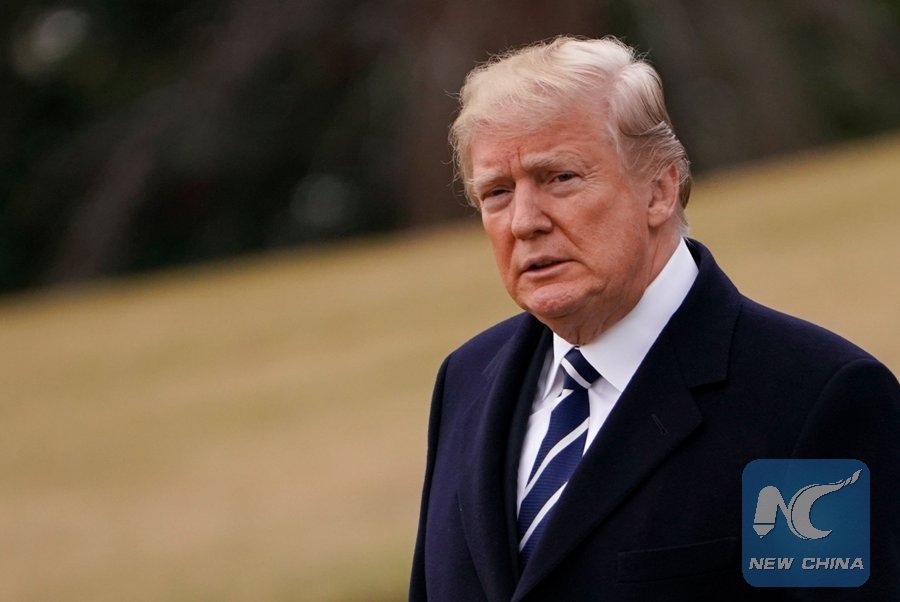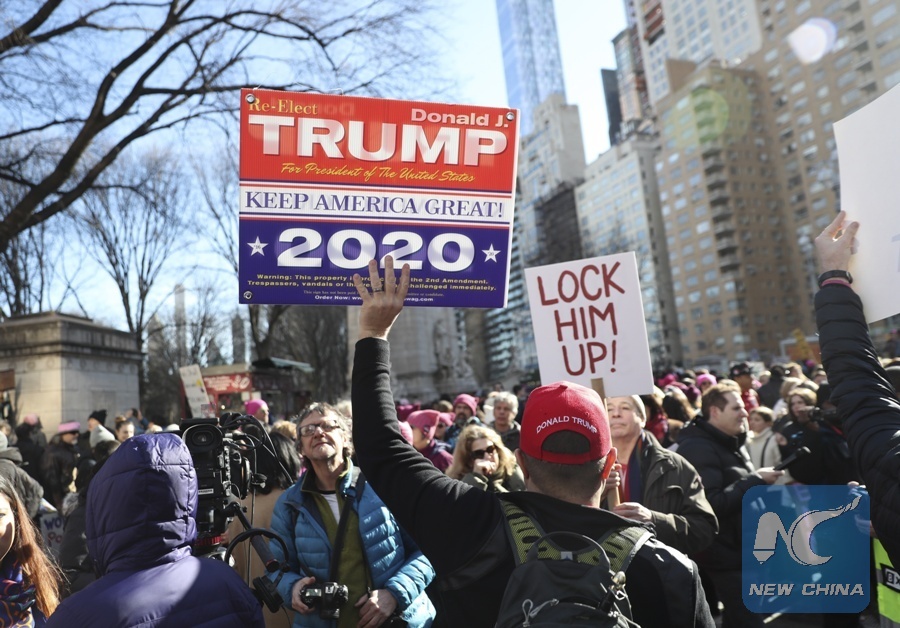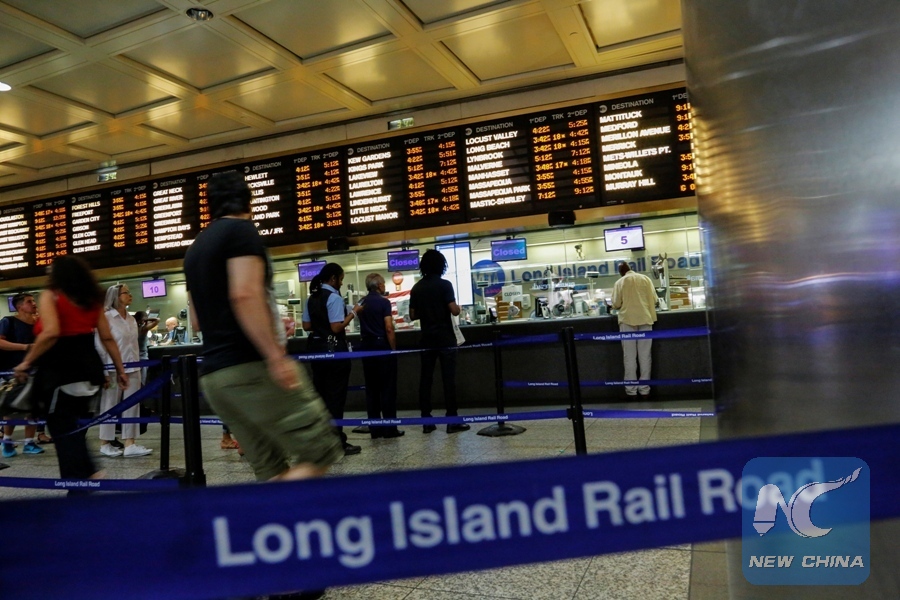
U.S. President Donald Trump makes his way to board Marine One before departing from the South Lawn of the White House on Feb. 1, 2018 in Washington, D.C. (Xinhua/AFP)
WASHINGTON, Jan. 31 (Xinhua) -- In his maiden State of the Union (SOTU) address on Tuesday night, U.S. President Donald Trump touted his first year in office, while pitching his second-year agenda as he pinned hope on bipartisanship amid an intensifying political divide in Congress.
Trump's nearly 90-minute speech, which included pitches for an infrastructure plan, an immigration overhaul, and calls for unity and bipartisanship, received a mixed response from politicians and scholars.
House Speaker Paul Ryan said in a tweet that the president "laid out a clear agenda" in the speech with "an open hand toward bipartisan cooperation."

A supporter of U.S. President Donald Trump attends the 2018 Women's March in New York, the United States, Jan. 20, 2018. (Xinhua/Wang Ying)
Republican Senator Ted Cruz of Texas described the speech as "very strong" in an interview with Fox News, while lashing out at the Democrats for their stone-faced reactions.
"After a long and divisive year, many Americans were yearning for the President to present a unifying vision for the country," Senate Minority Leader Chuck Schumer said in a tweet.
"Unfortunately, his #SOTU address stoked the fires of division instead of bringing us closer together," the Democratic senator of New York added.
A considerable part of the president's remarks focused on the U.S. economic growth in the past year, including the high stock markets and low unemployment, but Schumer said that Trump "owes a lot of it" to his predecessor, Barack Obama.
Immigration was a major policy area that Trump detailed in the speech.
He laid out a legislative framework for immigration that includes a path to citizenship for young illegal immigrants, measures to boost border security, and an end to visa lottery and chain migration.
People protest for immigration reform for DACA recipients and a new Dream Act, in Los Angeles, the U.S. state of California, on Jan. 22, 2018. (Xinhua/REUTERS)
"The section on immigration demonstrates how fully the GOP has changed from where it was even a decade ago on that issue," Christopher Galdieri, assistant professor at Saint Anselm College in New Hampshire, told Xinhua.
"The speech was laden with reverential nods toward blue-collar, traditionally male-dominated professions," Galdieri stressed. "In many ways this was a continuation of themes and rhetoric from Trump's campaign in 2016."
Delivering a Democratic response, Representative Joe Kennedy denounced the Trump administration's policies for "turning American life into a zero-sum game" in which the well-being of some Americans comes at the expense of others.
On Tuesday night, Trump also asked both parties in the Congress to pass an infrastructure bill so as to create 1.5 trillion U.S. dollars of investment.

Commuters wait to buy Long Island Rail Road tickets at New York's Pennsylvania Station, the nation's busiest train hub, which will be closing tracks for repairs causing massive disruptions to commuters, in New York City, the U.S., July 9, 2017. (Xinhua/REUTERS)
Elaine Chao, secretary of transportation, said that the focus on infrastructure is "a historic opportunity to create bipartisan legislation" to improve the quality of life for all Americans.
In response, House Minority Leader Nancy Pelosi said that the Trump plan has only 200 billion U.S. dollars in federal funding over 10 years, expecting state, localities, and the private sector to come up with the rest.
Republican Strategist Ford O'Connell told Xinhua that the president would have to seek Democratic votes to make progress in immigration and infrastructure bills.
As for foreign policies, Aaron Miller, vice president for New Initiatives at the Woodrow Wilson International Center for Scholars, described on Twitter Trump's SOTU remarks as "a lot of tough muscular rhetoric without a single reference to diplomacy anywhere."
Labeling it as a "selective" SOTU, Richard Haass, president of Council on Foreign Relations, said in a tweet that Trump embraced "beautiful clean coal" but no mention of climate change, while touting tax cuts but no mention of national debt.
"This is very much again a narrow speech about the issues he wanted to touch on, but no sense of America's role in the world, its leadership in the world," Haass told MSNBC.
(Matthew Rusling in Washington contributed to the report.)

